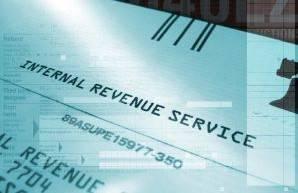Recent Blog Posts
IRS Expands Options for Using Installment Agreements to Pay Tax Debts
 Compliance with tax laws is a requirement for people and businesses in the United States, but some taxpayers may struggle to pay the taxes they owe. A person who has unpaid taxes may worry that they will be subject to collection actions by the Internal Revenue Service (IRS) such as wage garnishment or tax liens. Currently, this is a major concern for those who have experienced financial difficulties due to the COVID-19 pandemic. As part of its ongoing efforts to address these issues, the IRS has given taxpayers more options for paying the taxes they owe through installment agreements.
Compliance with tax laws is a requirement for people and businesses in the United States, but some taxpayers may struggle to pay the taxes they owe. A person who has unpaid taxes may worry that they will be subject to collection actions by the Internal Revenue Service (IRS) such as wage garnishment or tax liens. Currently, this is a major concern for those who have experienced financial difficulties due to the COVID-19 pandemic. As part of its ongoing efforts to address these issues, the IRS has given taxpayers more options for paying the taxes they owe through installment agreements.
Installment Agreements Under the Taxpayer Relief Initiative
Taxpayers with outstanding tax liabilities have the option to pay off the amount they owe over time by making regular payments to the IRS. To qualify for an installment agreement, a taxpayer will need to have filed all required tax returns and tax forms. To address the financial issues that many people have experienced due to the COVID-19 crisis, the IRS has created a Taxpayer Relief Initiative that has expanded people’s ability to use installment agreements. The changes made under this program include:
What Types of Notices Can Taxpayers Receive From the IRS?
 Taxes are a reality that most U.S. citizens and residents need to deal with, and understanding the various tax laws that apply to a person or business can often be a complicated matter. If a taxpayer makes mistakes or oversights when filing tax returns or other tax documents, they could face penalties from the Internal Revenue Service (IRS). Being contacted by the IRS may cause taxpayers to worry that they will be subject to these types of penalties. However, not every piece of communication from the IRS will result in penalties, and taxpayers will want to understand the different types of notices that the IRS may send and their options for responding and addressing or correcting tax issues.
Taxes are a reality that most U.S. citizens and residents need to deal with, and understanding the various tax laws that apply to a person or business can often be a complicated matter. If a taxpayer makes mistakes or oversights when filing tax returns or other tax documents, they could face penalties from the Internal Revenue Service (IRS). Being contacted by the IRS may cause taxpayers to worry that they will be subject to these types of penalties. However, not every piece of communication from the IRS will result in penalties, and taxpayers will want to understand the different types of notices that the IRS may send and their options for responding and addressing or correcting tax issues.
IRS Letters and Notices
Communications from the IRS can generally be grouped into one of the following categories:
How Can Taxpayers Address Delinquent International Tax Returns?
 U.S. taxpayers are required to comply with a wide variety of tax laws, but understanding these complex requirements can sometimes be difficult, especially for those who own international assets or earn income from foreign sources. Taxpayers may be required to file multiple different types of forms related to foreign assets, accounts, and income, and those who have not met their foreign investment reporting requirements may be concerned about the possibility that they may face a tax audit and be subject to penalties. Fortunately, the IRS has provided procedures that taxpayers can follow to file delinquent international tax returns.
U.S. taxpayers are required to comply with a wide variety of tax laws, but understanding these complex requirements can sometimes be difficult, especially for those who own international assets or earn income from foreign sources. Taxpayers may be required to file multiple different types of forms related to foreign assets, accounts, and income, and those who have not met their foreign investment reporting requirements may be concerned about the possibility that they may face a tax audit and be subject to penalties. Fortunately, the IRS has provided procedures that taxpayers can follow to file delinquent international tax returns.
What Are the Tax Consequences of Expatriation?
 Those who live in the United States may choose to leave the country and live elsewhere, but if this will be a permanent change, they should be aware that they may face certain tax consequences. Expatriation occurs when a U.S. citizen chooses to relinquish their citizenship. Expatriation will also apply to a lawful permanent resident who holds a “Green Card” if their immigration status is revoked or abandoned or if they notify the IRS that they will be commencing residence in a country that has a tax treaty with the United States. Expatriates may be required to pay an exit tax, and they will want to understand how the tax laws will apply to their situation.
Those who live in the United States may choose to leave the country and live elsewhere, but if this will be a permanent change, they should be aware that they may face certain tax consequences. Expatriation occurs when a U.S. citizen chooses to relinquish their citizenship. Expatriation will also apply to a lawful permanent resident who holds a “Green Card” if their immigration status is revoked or abandoned or if they notify the IRS that they will be commencing residence in a country that has a tax treaty with the United States. Expatriates may be required to pay an exit tax, and they will want to understand how the tax laws will apply to their situation.
Who Is Subject to the Exit Tax?
The exit tax (also known as the expatriation tax) is a form of income tax that applies to the potential gains a person would earn by selling or disposing of the assets they own. While capital gains taxes typically apply to the profits a person earns when selling assets, a taxpayer may not actually realize these gains until years or decades after they leave the United States. Exit taxes ensure that the IRS can apply the proper taxes to the gains a person earned while they resided in the United States.
When Can Taxpayers Face Premature Tax Assessment by the IRS?
 Many taxpayers are understandably concerned when they receive a notification from the IRS stating that they owe taxes. If a taxpayer does not respond to a Statutory Notice of Deficiency, the IRS may perform a tax assessment and take action to collect the amount owed. A taxpayer may appeal the tax deficiency by filing a petition in Tax Court, but in some cases, a petition may not be received in time, resulting in a premature tax assessment.
Many taxpayers are understandably concerned when they receive a notification from the IRS stating that they owe taxes. If a taxpayer does not respond to a Statutory Notice of Deficiency, the IRS may perform a tax assessment and take action to collect the amount owed. A taxpayer may appeal the tax deficiency by filing a petition in Tax Court, but in some cases, a petition may not be received in time, resulting in a premature tax assessment.
Time Limits for Tax Assessments
After receiving a Notice of Deficiency, a taxpayer has 90 days to file a petition in Tax Court. After the end of this 90-day period, the IRS has 60 days to perform a tax assessment. The IRS may then take a number of different types of actions to collect the amount owed by the taxpayer, including issuing levies to seize a taxpayer’s assets or garnish his/her wages, placing tax liens on a taxpayer’s property, or offsetting a taxpayer’s tax refunds.
How Will Changes to Federal Rules Affect Worker Classification?
 The United States economy has changed significantly over the past decade. More and more workers are participating in what is known as the “gig economy” or “sharing economy,” allowing them to set their own schedules while completing tasks such as transporting passengers or making deliveries. While these types of arrangements have benefited many workers and those who use their services, questions have been raised about worker classification and whether certain types of gig workers should be considered independent contractors or employees. While several states, including California, have implemented laws to address this issue, the federal government has also weighed in on the topic. A recent rule change from the Department of Labor created a test that should be used to determine whether a worker is self-employed or is dependent on an employer.
The United States economy has changed significantly over the past decade. More and more workers are participating in what is known as the “gig economy” or “sharing economy,” allowing them to set their own schedules while completing tasks such as transporting passengers or making deliveries. While these types of arrangements have benefited many workers and those who use their services, questions have been raised about worker classification and whether certain types of gig workers should be considered independent contractors or employees. While several states, including California, have implemented laws to address this issue, the federal government has also weighed in on the topic. A recent rule change from the Department of Labor created a test that should be used to determine whether a worker is self-employed or is dependent on an employer.
How the Recent COVID-19 Relief Bill Affects Small Businesses and Taxpayers
 The COVID-19 pandemic has led to struggles for many people and businesses. While the rollout of vaccines in 2021 will eventually allow for a return to normal activities, many businesses will continue to experience a loss of revenue due to requirements to close, scale back operations, or lay off employees. Fortunately, the federal government has implemented programs meant to provide relief to businesses and taxpayers who have been affected by the pandemic. The Coronavirus Response and Relief Supplemental Appropriations Act of 2021 (CRRSAA), which was signed into law on December 27, 2020, made a number of changes that may benefit both small businesses and individual taxpayers. These include:
The COVID-19 pandemic has led to struggles for many people and businesses. While the rollout of vaccines in 2021 will eventually allow for a return to normal activities, many businesses will continue to experience a loss of revenue due to requirements to close, scale back operations, or lay off employees. Fortunately, the federal government has implemented programs meant to provide relief to businesses and taxpayers who have been affected by the pandemic. The Coronavirus Response and Relief Supplemental Appropriations Act of 2021 (CRRSAA), which was signed into law on December 27, 2020, made a number of changes that may benefit both small businesses and individual taxpayers. These include:
- Additional PPP loans - The Paycheck Protection Program, which was implemented as part of the CARES Act of 2020, provided loans for businesses, and these loans were forgivable so long as a business could show that a certain percentage of the loan was used for payroll purposes. Under the CRRSAA, businesses that had previously received a PPP loan will be able to receive an additional loan, although to qualify, a business must not be publicly owned, it must employ fewer than 300 people, and it must be able to show that its gross receipts in any quarter of 2020 were 25% less than in the same quarter in 2019. First-time loans will also be available to businesses that had not previously taken a PPP loan, and eligible businesses include self-employed individuals, independent contractors, and sole proprietors.
How Have IRS Rules Changed for Section 1031 Like-Kind Exchanges?
 Major financial transactions can have a variety of tax consequences, but taxpayers may be able to make use of tax laws and regulations to minimize the taxes they will be required to pay. Real estate transactions will often result in capital gains taxes being applied to the profits earned, but in some cases, a taxpayer may be able to use a “like-kind exchange” to defer the taxes owed. However, the Tax Cuts and Jobs Act (TCJA) of 2017 made some changes to the types of property that can be included in these exchanges, and the IRS recently issued new rules that will apply in these cases.
Major financial transactions can have a variety of tax consequences, but taxpayers may be able to make use of tax laws and regulations to minimize the taxes they will be required to pay. Real estate transactions will often result in capital gains taxes being applied to the profits earned, but in some cases, a taxpayer may be able to use a “like-kind exchange” to defer the taxes owed. However, the Tax Cuts and Jobs Act (TCJA) of 2017 made some changes to the types of property that can be included in these exchanges, and the IRS recently issued new rules that will apply in these cases.
What Is a Like-Kind Exchange?
Section 1031 of the Internal Revenue Code allows taxpayers to defer capital gains taxes when selling certain types of property if the proceeds from the sale are reinvested into replacement property. The replacement property must be of a “like-kind” to the original property, meaning that it is property of the same type. Typically, business or investment property can be exchanged for other business or investment property.
What Tax Issues Need to Be Addressed Upon Expatriation From the U.S.?
 People who live in the United States are required to pay a variety of different types of taxes. Because the U.S. Tax Code is so complex, taxpayers are not always aware of issues that may affect the taxes they pay, and they may encounter situations that trigger unexpected tax obligations. In addition to paying taxes while residing in the United States, taxpayers will also need to meet certain requirements when moving to other countries.
People who live in the United States are required to pay a variety of different types of taxes. Because the U.S. Tax Code is so complex, taxpayers are not always aware of issues that may affect the taxes they pay, and they may encounter situations that trigger unexpected tax obligations. In addition to paying taxes while residing in the United States, taxpayers will also need to meet certain requirements when moving to other countries.
U.S. citizens who plan to relinquish their citizenship or permanent residency “Green Card” holders who will no longer be lawful permanent residents of the United States will need to follow expatriation procedures with the IRS. In some cases, an exit tax may apply, or a person may face a tax audit based on his or her compliance with tax obligations in previous years. By working with a tax law attorney, these individuals can understand their obligations and take steps to minimize penalties and avoid ongoing tax issues.
How Changing IRS Programs May Affect Foreign Tax Compliance
 U.S. taxpayers who own offshore accounts or other foreign assets may struggle to understand their requirements for reporting foreign investments to the Internal Revenue Service (IRS) and paying taxes on foreign income. In some cases, these matters have become even more confusing following recent changes to the programs the IRS has made available to taxpayers. In 2018, the IRS ended the Offshore Voluntary Disclosure Program (OVDP), and recently, it also took down the Delinquent International Information Return Submission Procedures (DIISP) from its website. This has left many taxpayers concerned about their ability to become compliant with IRS requirements and avoid penalties related to reporting foreign assets and income.
U.S. taxpayers who own offshore accounts or other foreign assets may struggle to understand their requirements for reporting foreign investments to the Internal Revenue Service (IRS) and paying taxes on foreign income. In some cases, these matters have become even more confusing following recent changes to the programs the IRS has made available to taxpayers. In 2018, the IRS ended the Offshore Voluntary Disclosure Program (OVDP), and recently, it also took down the Delinquent International Information Return Submission Procedures (DIISP) from its website. This has left many taxpayers concerned about their ability to become compliant with IRS requirements and avoid penalties related to reporting foreign assets and income.
What Is DIISP?
Previously, the DIISP allowed taxpayers to receive a waiver of the penalties that would normally apply to unreported foreign assets. Taxpayers could qualify for the DIISP if they did not have any unreported income, as long as they could show that they had reasonable cause for their non-compliance, such as death, serious illness, natural disasters, or ignorance of tax laws.









